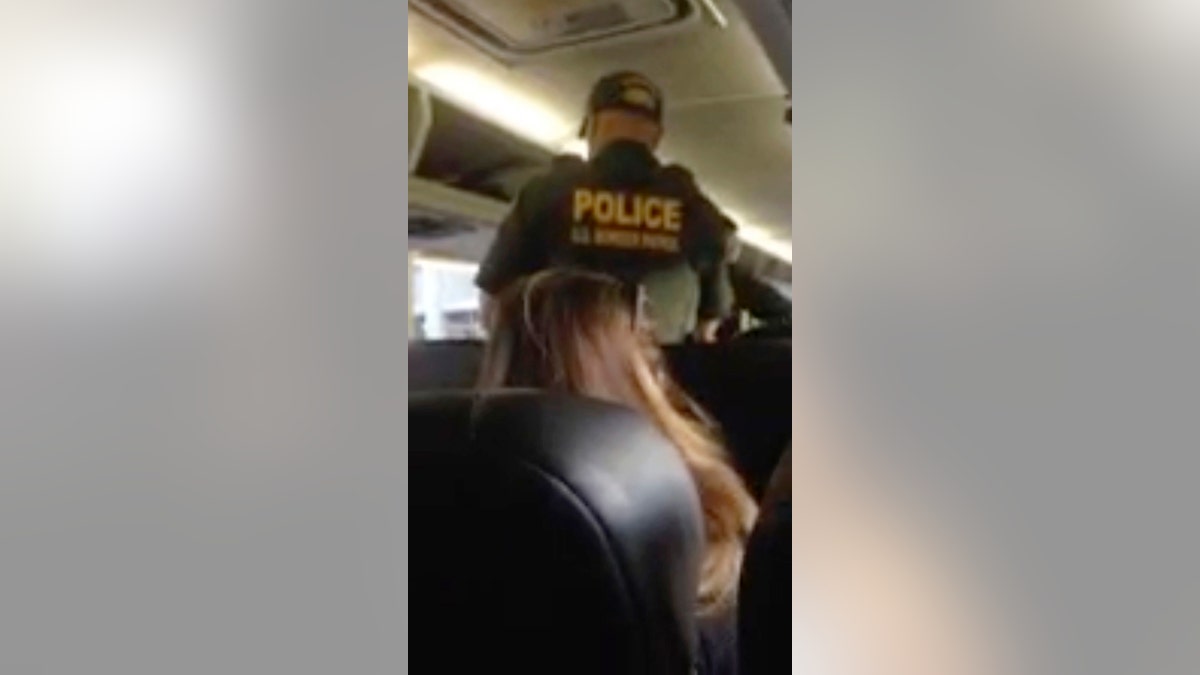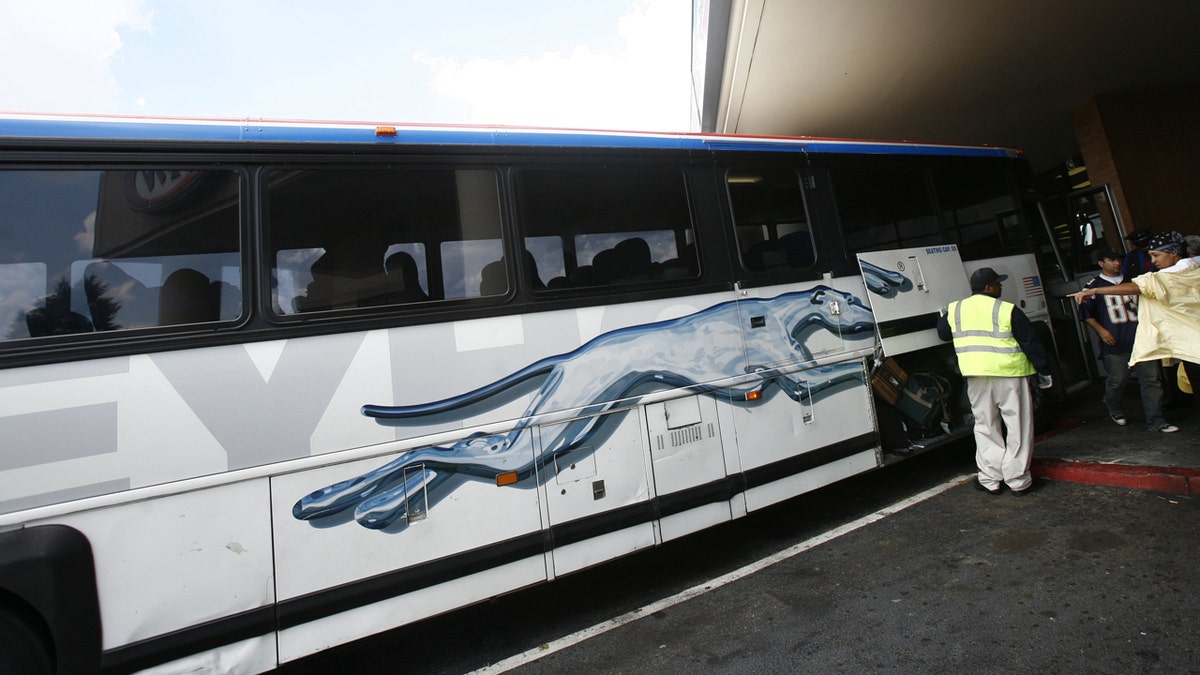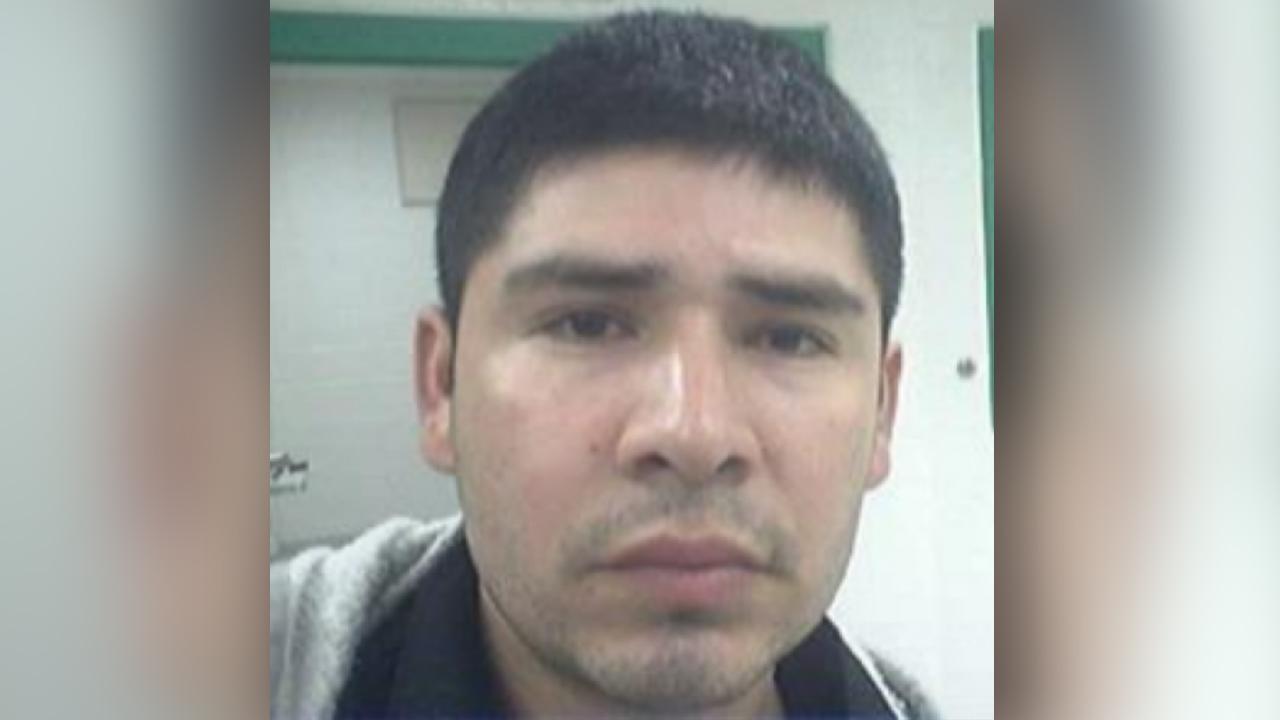
In this Friday, Jan. 19, 2018, image made from video, a Border Patrol officer requests identification of travelers on a Greyhound bus in Fort Lauderdale, Fla. (Raquel Quezada via AP)
A viral video that shows U.S. Border Patrol agents boarding a Greyhound bus in Florida and running an immigration check has sparked outrage across the internet this week, with many asking whether the agents had a legal right to do so.
It turns out they did.
The video has been viewed more than three million times since it was posted online on Saturday, and shows the agents boarding the bus and asking nearly every passenger for proof of citizenship.
“This is new?” one woman is heard saying on the video, posted on Twitter by the Florida Immigrant Coalition. “This is the first time,” another woman responded when asked if she had been on the bus route and experienced checkpoints before. Moments later, another woman who did not have proper documentation was pulled off the bus by agents and detained.
Many on the bus -- and across the internet -- were outraged over the seemingly new protocol by the Border Patrol agents, but in reality, it’s a practice that has been employed by the Border Patrol for decades.
While the Fourth Amendment may prohibit unreasonable search and seizure, the Border Patrol has extraconstitutional powers that allow agents to operate immigration checkpoints and conduct spot checks with probable cause within a 100-mile zone that runs along the border of the contiguous United States.
Spot checks, like the one that occurred in Fort Lauderdale on Friday, are often conducted as part of agents' efforts to combat illegal immigration.
“It’s a traditional enforcement tactic,” Jessica Vaughan, director of policy studies for the Center for Immigration Studies, tells Fox News. "It’s long known that smugglers often use public transportation like buses for their trade.”
She added: “Sometimes they are based on leads. Sometimes they conduct random checkpoints. It’s a deterrent. It’s like a speed trap and it does result in the public being safer.”

A Greyhound bus stop in Baltimore in 2008. (Reuters)
Vaughan adds that in years past, Greyhound and other bus services would often work with the Border Patrol to help combat smugglers using coach service to transport illegal immigrants across the country.
In 2005, Greyhound threatened to dismiss any employee who sold tickets to illegal immigrants and drafted an internal policy that aimed to have employees spot and identify smugglers, according to a report from The Seattle Times.
Bus companies "supported it because they didn’t want criminal smuggling operations taking advantage of their business,” she says.
While the spot checks were often used agents looking to curb the number of illegal entries, these were stopped during the previous administration.
“This is something that the Obama administration shut down because they believed that it made people feel uncomfortable,” she says, “and now we're seeing a return to this under the Trump administration. This is good law enforcement that is legitimate and effective. It’s a good way to catch smugglers and is a significant deterrent.”
Incidents like the one on Friday are hardly the first time Border Patrol agents have conducted spot checks on a Greyhound bus.
Earlier this month, agents pulled a man and his son off one of the company’s coaches in Spokane, Washington. The man, Martin Vera, and Sergio, his son, were detained after they were stopped by Border Patrol agents at the Spokane Intermodal Center and found unable to adequately provide proof of citizenship. While Sergio was released because he was a Deferred Action for Childhood Arrivals (DACA) recipient, his father continues to be detained and will likely to be deported back to Mexico.
Many take issue with these stops and with immigration checkpoints set up throughout the states of New Mexico, Texas, California and Arizona.
The Florida Immigrant Coalition, which posted the video of the Greyhound encounter, has spoken out against spot checking.
“The 100-mile rule pertains to the whole state of Florida and two-thirds of the country,” Melissa Taveras, a spokeswoman, says to Fox News. “But an individual that’s approached by an agent has every right to remain silent and not comply.”
Taveras says that episodes like the one in Fort Lauderdale are often reported by witnesses, and that another person, a Guyanese man, was detained during a check on the very same day while traveling on a northbound Greyhound.
The coalition suggests that different methods should be used, and maintains that the current stops do more harm than good.
“Our community here feels afraid,” Taveras says. “They are afraid to go to work. They are afraid to take their children to school and they are even afraid to report crimes.”
She adds, “We don’t think it helps the community because it erodes that trust.”


